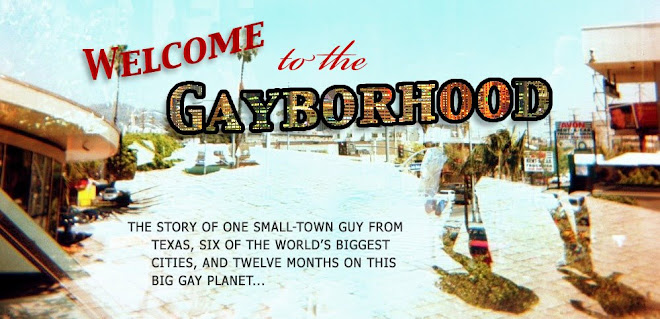A few weeks ago I interviewed Kenny (many Koreans also keep English names, to the frustration most westerners). Kenny is one of the coordinators of Seoul's gay pride parade, as well as one of the key organizers of the Gay and Lesbian film festival and one of the editors of Korea's only gay magazine. He's also involved in Chingusai, Korea's biggest gay men's club, iSHAP, the sexual health awareness group. He helped found one of Korea's first gay clubs at his college and is very well in the know with the Seoul gay scene.
Kenny, like most unmarried Korean men in their late twenties to early thirties, lives at home with his parents. When I asked him if he'd discussed his sexuality with his parents, his response was a simple, "Well, no".
Had this been the beginning of my stay in Korea, I would have been blown away (if only by the mere logistical feat) but by now it was the response I'd anticipated. The idea of 'coming out' is integrally tied to a gay identity in the US, and while many to most Korean's don't consider it to be their identity, it's very difficult for most westerners to understand. Dave, a filmmaker focusing on Seoul's Gay Pride Parade and I were discussing this over a smoking pit of samgyopsal: "For the first few years I was here, I was like 'no really, you must want to come out' and they were like 'no, no I'm fine' and I would think 'no really, but it must be terrible' and they'd say, 'no really I mean, this is how I want it'. It was several years before I could ever really accept their word."
The fact is, that from my first few days of my arrival, I've been told by just about everyone that 'coming out' is just not an appropriate model to apply to Korean people. I asked Kenny what the phrase 'gay pride' meant to him, a term he'd used earlier in the conversation, and he said that he thinks of it as being a personal thing a matter of self-acceptance and esteem. And anyway he stressed that he does feel proud to be gay, and didn't hide it - he uses his real, Korean name in publications and doesn't hide his face from cameras in the parades and events. But his parents are old and unlikely to be aware of let alone interested in such things, but if they were to find out by whatever means that would be OK. I can more or less relate to his position. I certainly haven't discussed my sexuality with my eighty year old Chilean grandmother. Does she need to know? For most Korean people, their family and their relationship with them is so much more important than gratifying their own desires, it would be selfish of them to think otherwise, and by staying 'in the closet' it's not themselves that they feel they'd be protecting from strife, it's their loved ones.
I asked him if he thought that, if given the situation that his parents did read about him in an article or see him in a photo at one of the parades, would they approach him about it. "No, I don't think they would." "...but you wouldn't breech the subject with them either..."
"No."
Subscribe to:
Post Comments (Atom)


No comments:
Post a Comment